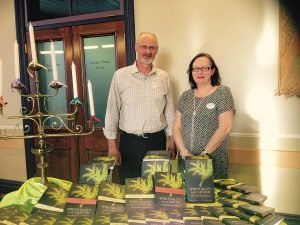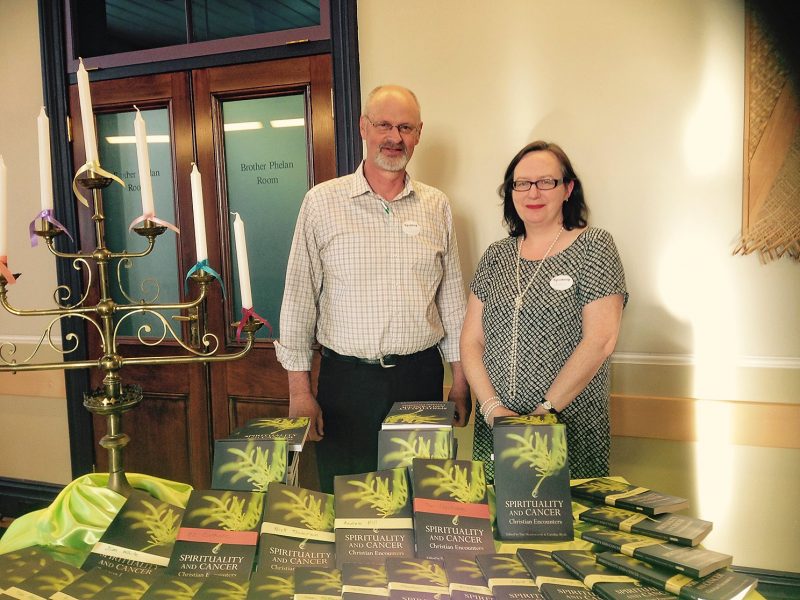by ROWENA OREJANA
Cancer is a difficult topic. Being confronted with one’s own or a loved one’s mortality is frightening and difficult.

Dr Tim Meadowcroft and Dr Caroline Blyth at the book launch.
Tim Meadowcroft and Caroline Blyth, editors of the new book Spirituality and Cancer, each had someone in their lives touched by cancer.
Dr Meadowcroft, senior lecturer at the School of Theology at Laidlaw College, said the book “is a good conversation between scientists, medics, pastors and theologians and people who have themselves suffered from cancer”.
“I don’t want to lose sight of the fact that because we have finished a nice book that doesn’t make it necessarily easy for people who are confronting cancer,” he said.
Finishing a book is “nice and tidy”, said Dr Meadowcroft; everything that cancer isn’t.
Dr Meadowcroft said his family had not had any encounter with cancer until a couple of years ago, when their young granddaughter was diagnosed with it.
“I thank God she is now in remission against the odds, but that sort of set me thinking about the whole phenomenon of cancer that’s so prevalent in society,” he said.
The experience prompted him to organise a symposium on cancer and spirituality in February last year. “When we planned the symposium, we always had in mind that there will be a publication coming from it,” he said.
“I was pleased with the way practitioners found the theological and spirituality side of things helped, and it was good for us who are more on that side to hear from the practitioners,” he added.
Dr Blyth, an undergraduate adviser and lecturer in Hebrew Bible and Religious Studies at Auckland University, said the book does not give definitive answers about the inevitable question, “Why?”, but they hoped that the different perspectives could help people in their search for answers.
Her own father died of cancer in 1999. “Spirituality is such an important part of the cancer experience. It has to be considered when people are thinking of their own experience of cancer,” she said.
Dr Blyth teaches a course for medical students on exploring the spirituality of healing. She said one of the topics in that course is how to look after people with cancer or other life-threatening illnesses.
“One of the things I talk to them about is you’re never alone in looking after someone with cancer. You will always have a team of people working with you: nurses, chaplains, religious leaders, family, so they shouldn’t feel frightened that they are the ones that will have to provide all the care,” she said.
She always advised her students to “be genuine”.
“In my chapter, I talked about it as a pilgrimage. Somebody is travelling on this path to end of life. You just have to show them that you are walking with them, holding their hand. You know that they are feeling pain. There’s nothing you can say that would make them feel better, but sometimes just a presence can be helpful,” she said.
Dr Meadowcroft said when one encounters cancer, life is never the same again.
“It’s always going to be harder now, but there is a possibility of a whole new life to live in God’s strength, somehow,” he said.

Reader Interactions